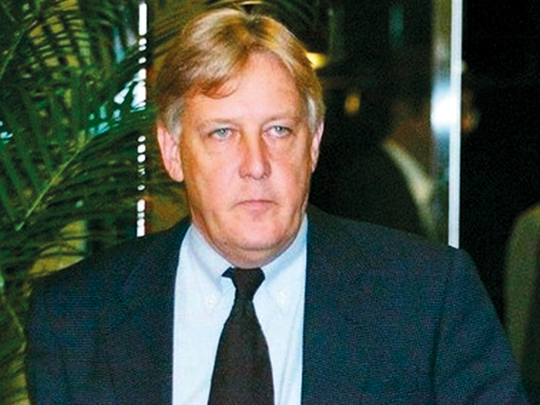
Al Mukalla: United Nations Secretary-General Antonio Guterres is optimistic his new envoy to Yemen will help the internationally-recognised government and the Iran-backed Al Houthis strike a deal that could put an end to almost three years of bloody conflict. “I hope soon it will be possible to relaunch a serious political process, but we need to cross our fingers,” he said an interview with the Voice of America on February 14. The UN chief has appointed Martin Griffiths, a former British diplomat, as his new envoy to Yemen, replacing the outgoing envoy Esmail Ould Shaikh Ahmad.
During his three-year tenure, Shaikh Ahmad shuttled dozens of time between Riyadh, Aden and Sana’a, seeking to find common ground between Yemen’s warring factions. Despite trying to keep an equal distance from all parties, Al Houthis started criticising him harshly, and accused him of serving “the aggression”, a reference to the Saudi-led coalition that backs their opponents. They then expelled him from Sana’a and demanded the UN chief replace him. Despite failing to make a breakthrough in the political process, Guterres believes Shaikh Ahmad made major progress in the humanitarian field. “There was an increase in humanitarian aid. There is the decision to open corridors to facilitate access to the different areas of the country. These are positive steps,” Guterres said in the same interview.
Yemen analysts said the outgoing envoy was lenient towards Al Houthis. “He was not strict with Al Houthis during his meetings with them, and did not name and shame them in his briefings to the Security Council,” Manea Al Matari, a Yemeni political commentator, told Sky News Arabia. Yemen’s government has often echoed the same criticism against Shaikh Ahmad’s mission, saying Al Houthis refused to comply with his demands because he used soft language.
For the new UN envoy to succeed in his challenging mission, the government said, he should focus on putting in place the UN Security Council’s resolution 2216, which obliges Al Houthis to pull out of cities, disarm and allow the government to return to Sana’a. Abdul Malek Al Mekhlafi, Yemen’s foreign minister, has repeated the government’s main condition for talks with Al Houthis: They should be based on the three references — Resolution 2216, outcomes of the National Dialogue Conference, and GCC peace initiatives. Those references recognise Abd Rabbo Mansour Hadi as the legitimate president of Yemen. Al Matari said the new UN envoy has more chances to break three years of stalemate in peace process, given his nationality, and new changes in the international arena. Griffiths hails from Britain, a country that has had a strong presence in the Yemeni political landscape, Al Matari said, adding he should take advantage of the international community’s tough tone against Iran’s meddling in Yemen’s affairs by arming Al Houthis. “The international community should be firm with groups or countries that violate the terms of the UN resolution,” Al Matari said.
For Hadi, ending the war is easier done by scaling up military operations against Al Houthis than through peace talks. Despite saying his government is willing to engage in talks, Hadi has ordered his troops to advance on Sana’a. Backed by the coalition, government forces are in control of almost 80 per cent of Yemeni territory, a strong motive for Hadi to order a push into Sana’a.
Here in southern Yemen, a new unified power structure has surfaced over the past several months. The Southern Transitional Council has seized control of the strategic city of Aden. For years, southerners say they have been shut out of Yemen’s peace talks. Now, analysts say the new UN envoy should take into consideration the new changes on the ground. “The war has brought about a new situation in south and northern Yemen,” Yasser Al Yafae, a political analyst based in Aden told Gulf News. In the north, after the death of Yemen’s ousted president Ali Abdullah Saleh, his once powerful party lies in disarray. In the south, the emerging council demanded a seat in peace talks. “If the UN envoy wants to succeed, he should take into account the new changes in Yemen. For the first time in a decade, the international community can now speak to one party that speaks on the behalf of the southerners,” Al Yafae said, referring to the STC.












